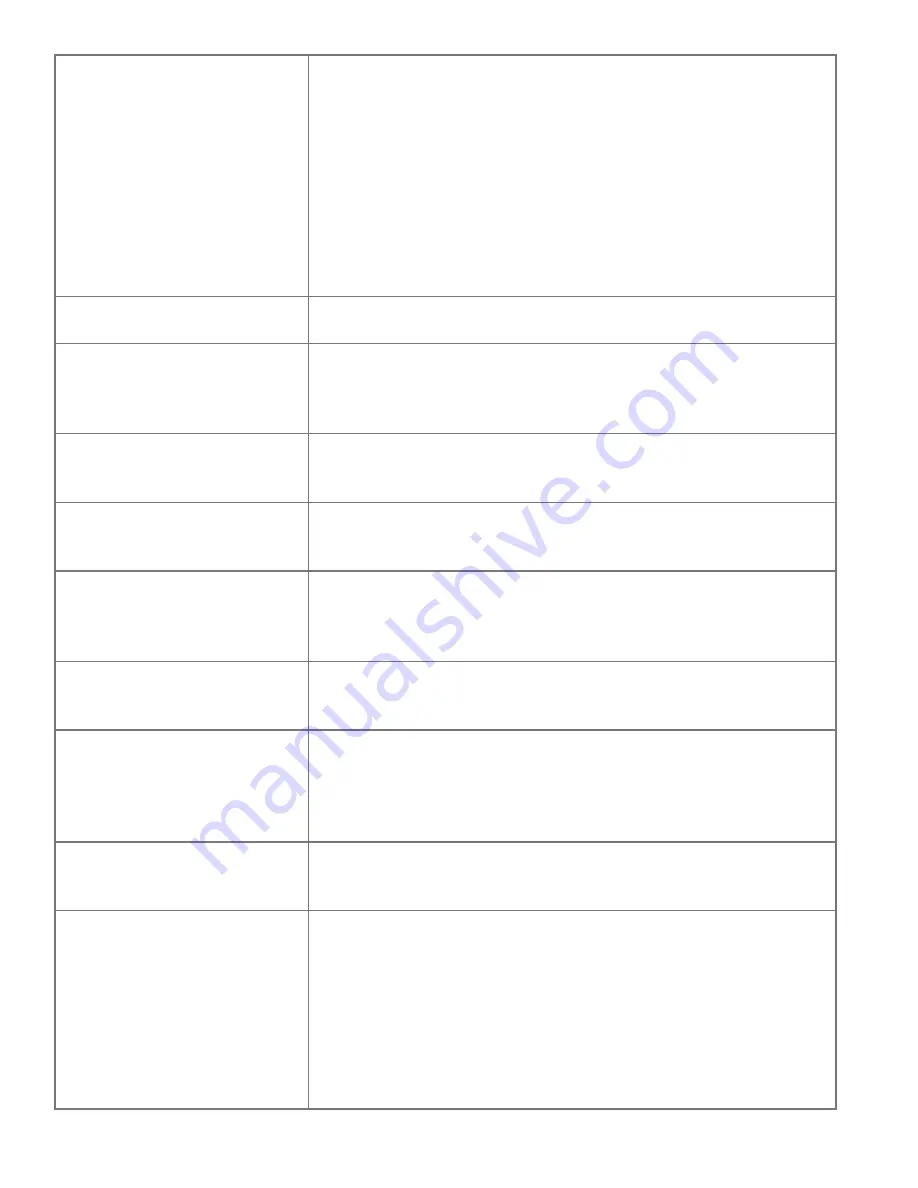
74 |
www.HandiQuilter.com
The machine head has been
threaded incorrectly or thread
spools are not positioned
correctly
• Check that the machine is threaded correctly.
• Inspect for accidental double wrapping of thread on
thread guides.
• Inspect the thread mast, making sure the eyelets of the mast are
directly over the spools.
• Inspect the vertical positioning of the thread cones. Tipped cones
can dramatically affect thread tension and can cause breakage.
Debris in tension discs
• Inspect for particles and remove any fuzz or debris.
Bobbin rotation is not smooth
• Change the bobbin. The slightest hesitation of the bobbin rotation
can be the cause of dramatic tension change and
thread breakage.
Needle is burred, bent or dull, or
installed incorrectly
• Change the needle at least once per quilt. Make sure the needle
is installed to the top of the stop hole in the needle bar.
Needle not suitable for thread
• Replace the needle to one better suited for the thread. Use the
proper size needle.
Hesitating too long at one point
in quilting motif
• Move more quickly so stitches don’t overlap or build up. When
starting the machine, begin moving immediately. Sewing in one
place too long will cause the thread to break.
Improper needle/hook
relationship
• Machine timing needs to be checked. Consult an authorized
Handi Quilter technician.
Damage or burr at needle hole
of throat plate or other thread
handling part
• If thread is shredding at the throat plate, check for burrs or jagged
edges. Gently rub with metal cloth to remove the sharp edge.
Consult a repair technician to polish any hard-to-reach or delicate
areas, or if the burr is inside the throat.
Wrong type of needle
• Use only the needles recommended by Handi Quilter (134 MR,
sizes 12 through 21).
Other possible problems
• Needle too close to hook, causing friction and possible collision of
hook point and needle (causing broken thread).
• Needle plate damage
• Hook damage
• Broken needles or damaged needle bar clamp
















































